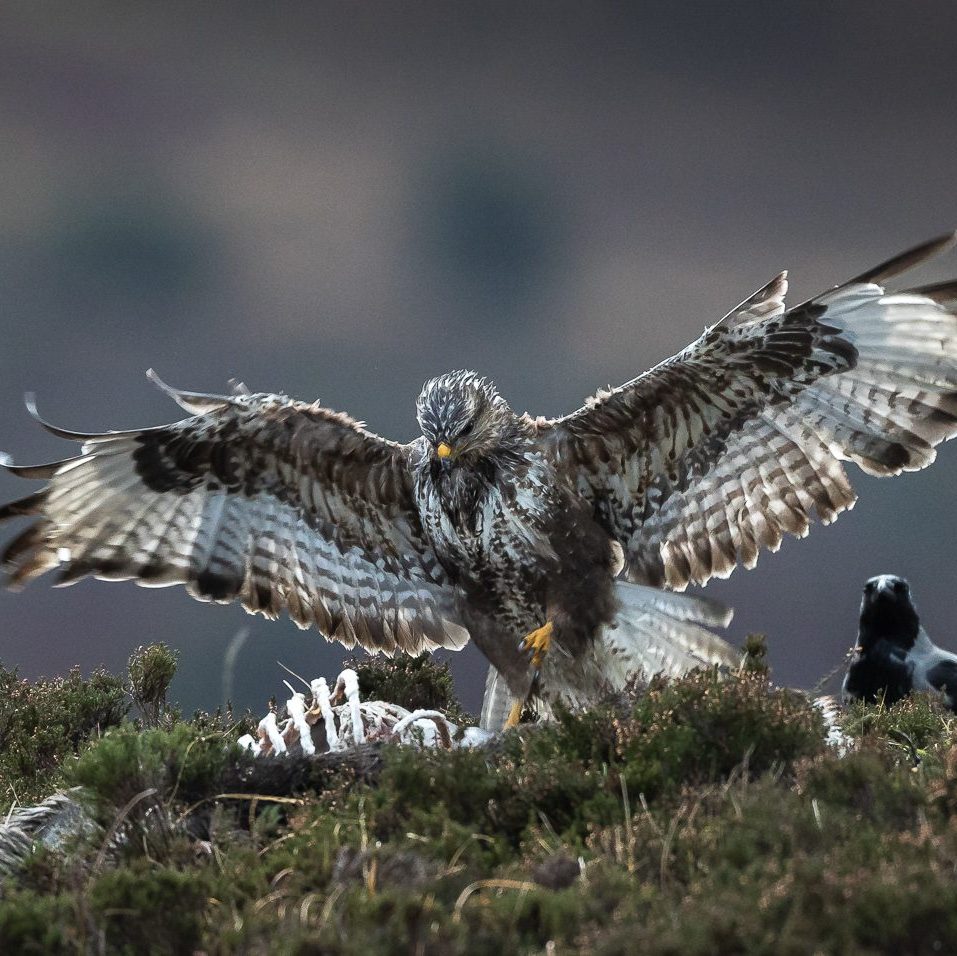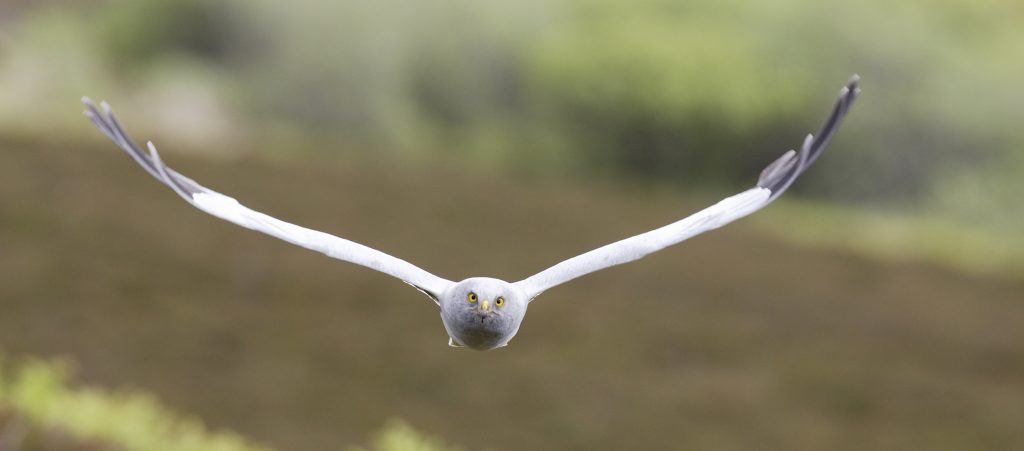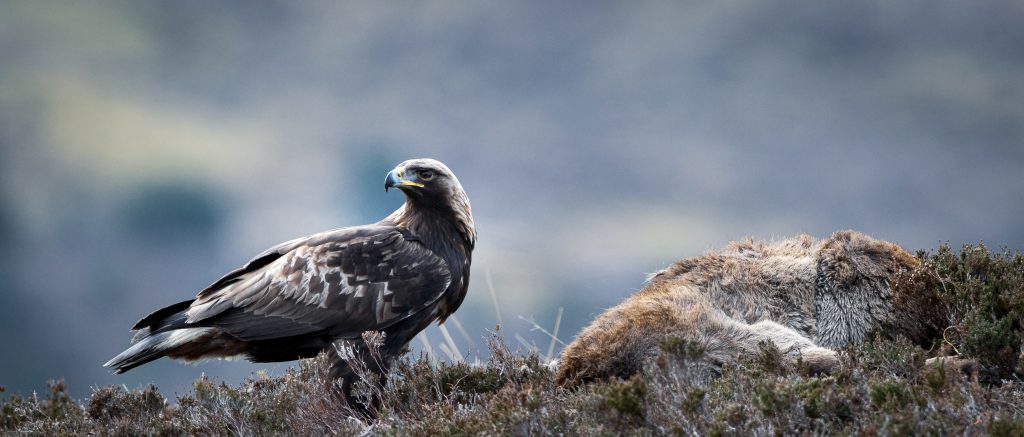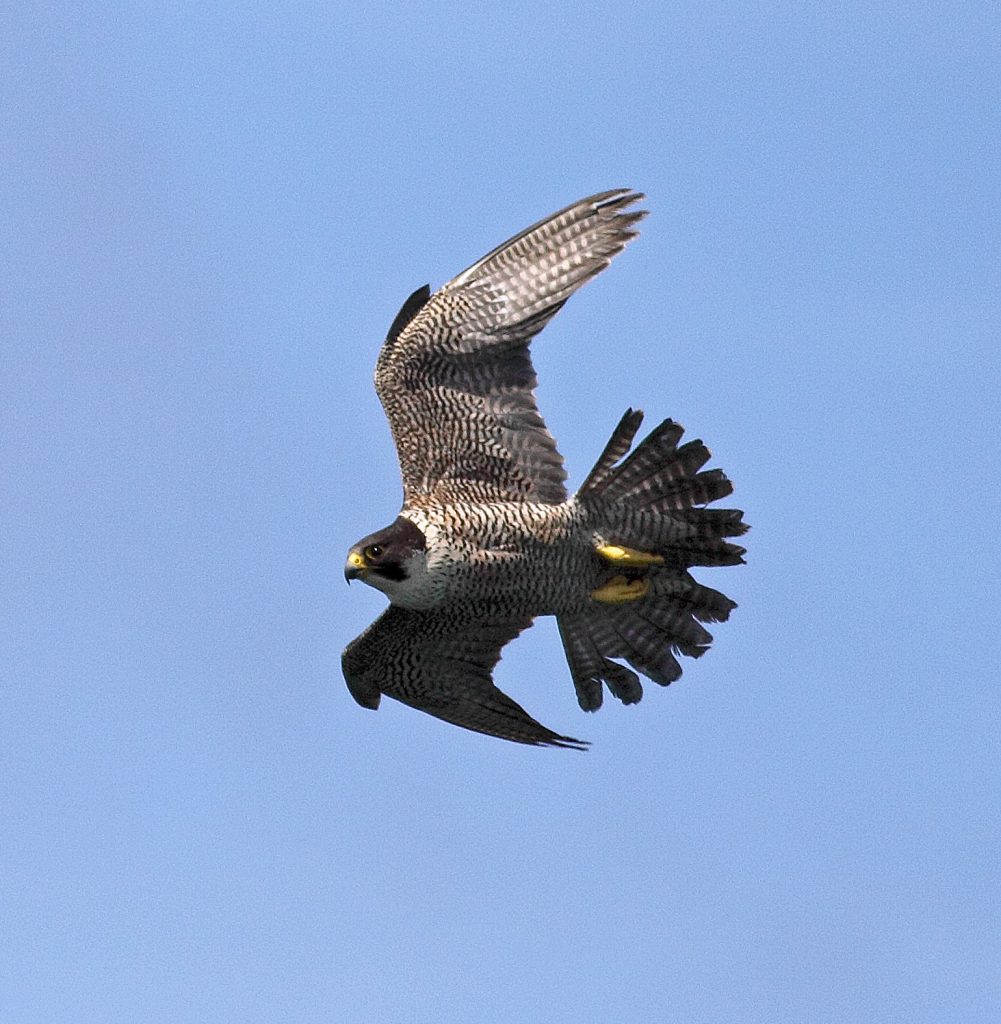Birds of prey like peregrines, golden eagles and hen harriers are deliberately and relentlessly shot, trapped and poisoned in the UK countryside, persecuted because they prey on game species of birds, like red grouse. These illegal activities, inextricably, repeatedly and independently linked with the grouse shooting industry, are the cause of much conflict between wildlife conservation and hunting groups. Whilst arguments can be made that highlight the benefits of the hunting industry to wildlife conservation, the illegal practices associated with the industry constantly undermine any pro-conservation arguments.
What’s the problem?
Birds of prey (or ‘raptors’) are predators. They include birds like hawks, eagles, kites, buzzards, harriers, falcons and owls, and are distinguished by their curved beaks, powerful talons and acute vision, making them especially adapted to hunting live prey. They range in size and shape in the UK, from the small-but-mighty merlin to the powerful white-tailed eagle. Raptor Persecution is one of the UK Wildlife Crime Priorities. It includes shooting, poisoning, trapping, habitat destruction and nest destruction/ disturbance. In the UK, all bird of prey species are protected and any criminal offences committed against these species are covered by the Wildlife and Countryside Act 1981.
“In 2019 there were 85 confirmed incidents of bird of prey persecution. Victims included buzzards, red kites, peregrines, goshawks, hen harriers and many other protected species. These are only the incidents we know about: more birds will certainly have been killed and not found, or their deaths not reported.”
The Birdcrime report is published annually by the RSPB, as a summary of detected offences against birds of prey that have been collated by the RSPB’s Investigations Team.
Illegal bird of prey persecution has been repeatedly and inextricably linked to the shooting industry, specifically driven grouse shooting. The inability of the legal and regulated hunting industry to clean up it’s act and self-police has brought it into regularly conflict with wildlife conservationists, with regular calls and independent campaigns demanding the licensing, or complete ban, of driven grouse shooting. Despite many independent reviews and an abundance of evidence, prosecutions almost never occur. The RSPB and other wildlife groups repeatedly highlight the illegal persecution of birds of prey, including high profile campaigns on the hen harrier, which faces extinction in England. You can read more here.
Despite calls from within the pro-hunting industry to put an end to illegal persecution, 2020 saw a spike in cases being reported to the RSPB (associated with lockdown measures). Natural England is working on conflict management strategies and interventions, including brood management, but change is not happening. It is arguably getting worse.

Buzzard 
Hen Harrier 
Golden Eagle 
Peregrine
Of the 30 companies examined by Ethical Consumer in 2016 and 2018, 20 were considered to have strong links to hunting – selling riflescopes and/or marketing products for sports hunting. 18 sold numerous sport hunting accessories, such as riflescopes, range finders, or night vision equipment. 15 marketed products specifically for trophy, ‘big-game’ and/or driven hunts in their promotional text, and were therefore considered to market to sports hunters. 13 had further links to hunting, through pro-staff, ownership by hunters, or the sponsorship of events. Two of these, Leupold & Stevens, and Zeiss, had their own ‘training academies’, where individuals could pay for courses on the use of optics in hunting.
With that in mind, consumers who wish to avoid all links with the pro-hunting industry may wish to avoid optical companies who sponsor, supply and support the hunting industry. Alternatively, demanding transparency and clear position statements on illegal practices from the sports optics companies might help put pressure on the industry as a whole.
What can I do?
The sports optics industry needs to show transparency by publishing policy statements specifically condemning illegal activities and distancing themselves from bad practices in the hunting industry. They should avoid sponsorship or advertising of any activities that could be associated with or connected to illegal bird of prey persecution. You can encourage them to do this: find contact details here. You can also choose to distance yourself from the hunting industry by shopping with a wildlife-friendly brand.